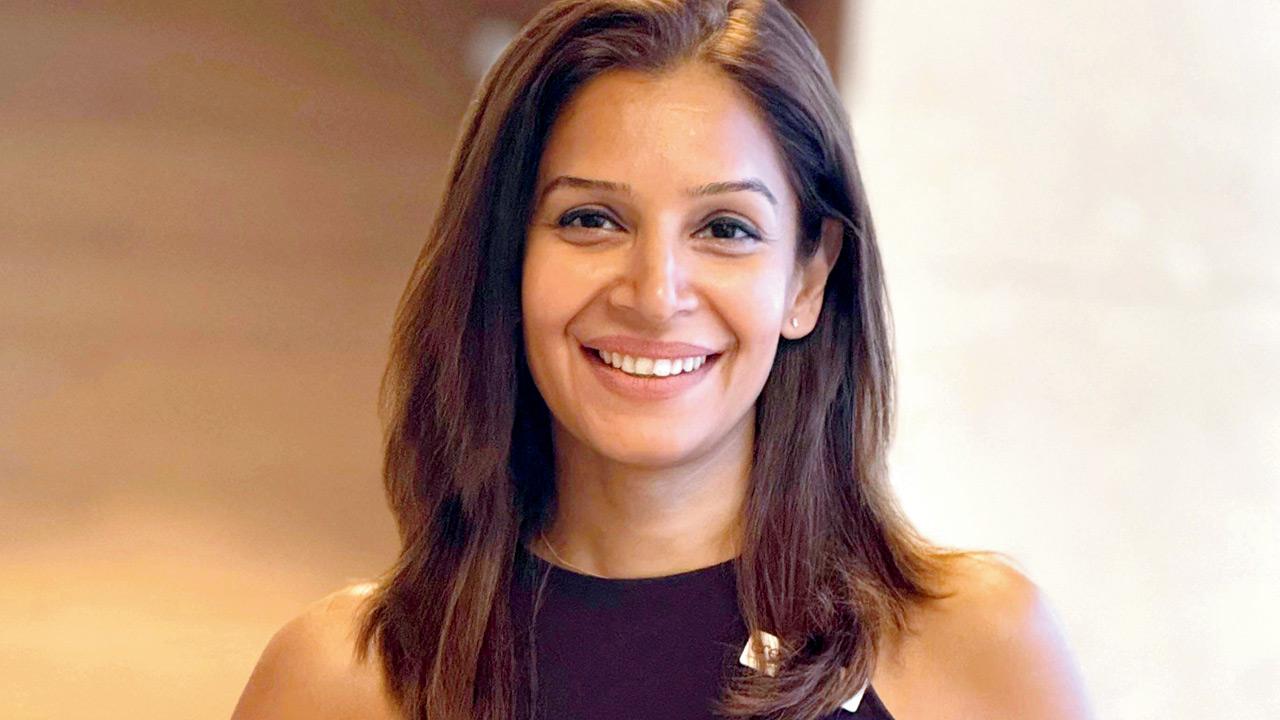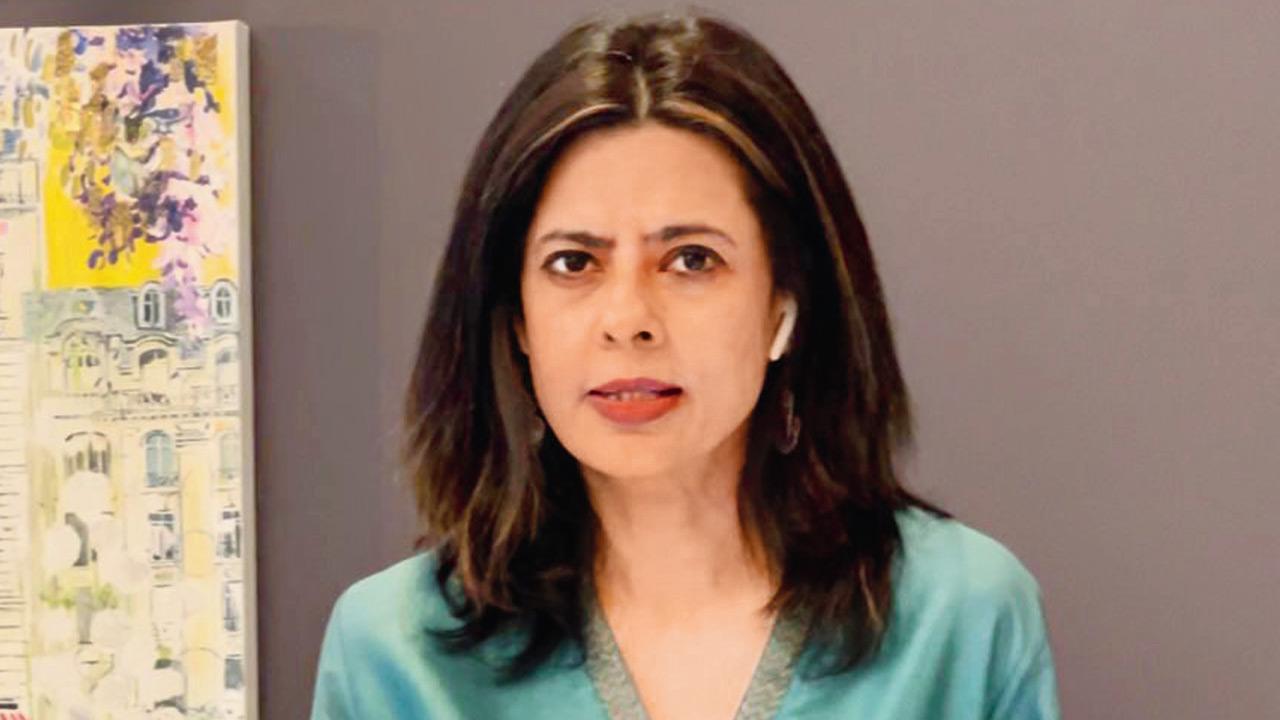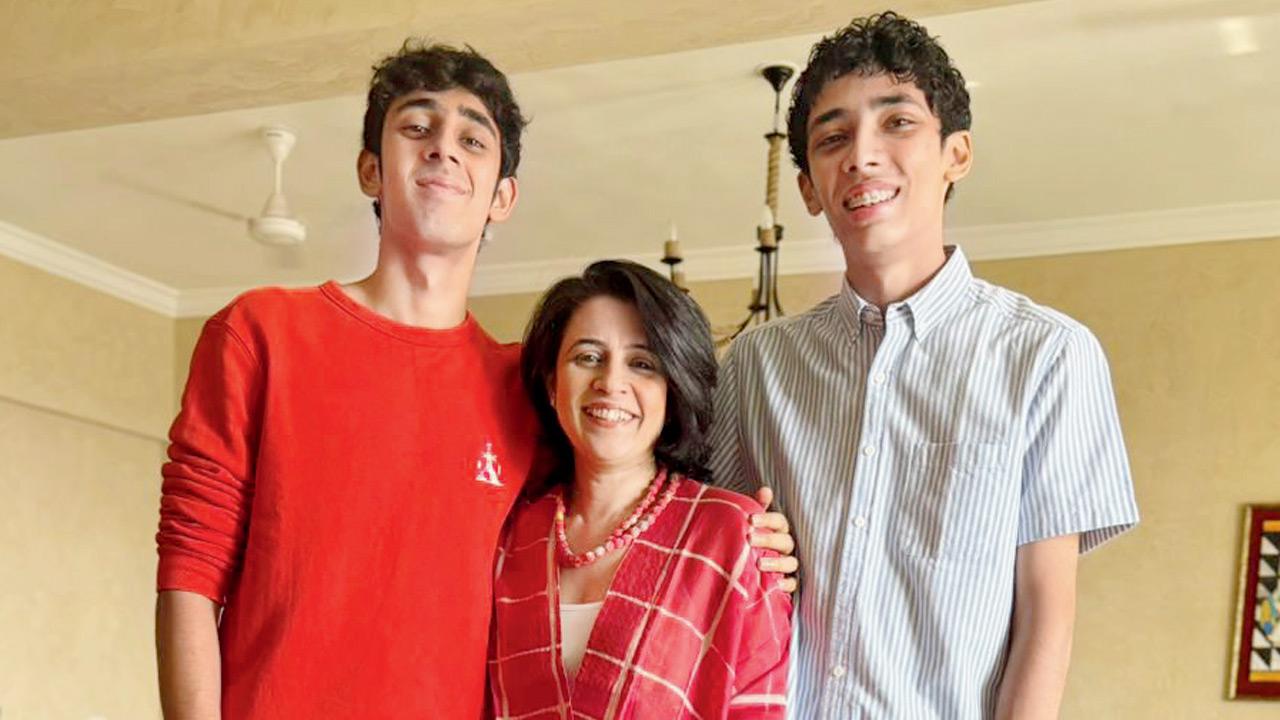How complex problems are affecting kids growing up in the Internet generation
Be it dealing with bullies, sharing their lives on social media, being attractive to the opposite sex, and dealing with serious issues such as ADHD – children at school have much more than just acing exams on their mind.
When Aaria Varma was twelve, a simple struggle with maths tables turned into something bigger. “I was finding it difficult to focus during my lessons. My parents sensed my struggle and took me to a therapist,” she shares. The diagnosis — (ADHD) and dyscalculia — made sense of the chaos in her mind. “I began to identify trends — my lack of ability to sustain attention, being impulsive, bursts of emotions, feeling restless that never seemed to abate.”

School wasn’t easy. “I would space out, miss directions, and have trouble getting things done in time. The stress often resulted in anxiety,” Aaria admits. Home didn’t feel easier either — “I couldn’t even explain it myself, which made it frustrating.” But instead of being silenced by it, Aaria found her voice. Her podcast, Zen-Z, was born from this restlessness. “My own personal experiences led me to start this platform, a safe space where teenagers feel understood and less alone.”
Today, she manages her ADHD with therapy, grounding techniques, and a determination to be gentler with herself. “ADHD makes things complicated, but I tell myself it’s alright to take a second, reboot, and attempt again.” “Unlike our parents, we’re growing up in a world where self-worth is constantly being measured in public through likes, shares, comments, and algorithms. Every post feels like a performance, and comparison becomes second nature. It influences the way we view ourselves, the way we interact with others, and even the way we measure success. Our parents didn’t have to navigate life while also curating online personas or living through 24/7 access to others’ filtered lives. What’s more challenging is that although these pressures are incredibly real, they’re usually belittled by adults as shallow or unreal.”
Archit Meher went viral two weeks when he spoke about the sexual assault case that surfaced in Mumbai at an elite SoBo school. A 40-year-old former teacher was arrested for sexually assaulting a male student and confessed to the police that she is still in love with the boy. He spoke about the bullying and toxic atmosphere at the school that he attended when he was 14. He is currently 22 and an on Instagram. Back when he started though, at school, he was just making videos for fun. Fun it was not though, when he faced severe bullying for his videos from his classmates. “They [classmates] made fake accounts and said really terrible things that no kid should hear at that age, really mean things. A group of five or six guys would team up against me and say awful stuff,” he says.

“Even some teachers seemed oddly invested in my personal life. My Technical Drawing Applications teacher, in particular, kept tabs on my YouTube channel and travel, commenting on it to other students. It felt intrusive and inappropriate. They had a knack for publicly humiliating kids. It’s like they weren’t equipped to deal with kids. And these are senior teachers I’m talking about,” he says.
Teachers would run tuitions outside of school, favouring those students who would come to those classes. “When I complained to these same teachers, they did nothing because these kids went to their tuition. Their parents were paying teachers for extra classes, so they just ignored it. They enabled this behaviour. That bullying was wrong — it shouldn’t happen because it causes kids to take their lives or face lifelong mental trauma. They claim to be anti-bullying, but that’s just on paper. I never saw any action,” he says.
“The kids [the bullies] are the same people who text me now asking me if I remember them, now that I am successful. It’s just crazy,” he continues, “Some teachers would join in when students made fun of others. There was a pattern of public shaming. These were senior educators — people we were supposed to look up to. Instead of protecting us, they contributed to the problem.”
Shweta Kaushal runs a young influencer marketing agency, Creatorcult Media, from her home in Kolkata — a choice shaped by her biggest responsibility: her 12-year-old daughter. She’s a media professional with over 18 years of experience in the industry. “The reason why I started Creatorcult was that I wanted to work from home and take care of my child as well,” she says.

Kaushal finds that the ability to say no to children is gone now. Whether out of respect or fear, kids of previous generations could never gather the courage to disobey their parents. She says, “At our age, when we were kids, when our parents said anything, that was it. And they [our parents] used to negotiate with negative reinforcement. But nowadays, these children aren’t really exposed to negative reinforcement.”
Being a single mother also poses its unique challenges. “Though I work from home, she sees that her mother is always at home but constantly either on the laptop or on the mobile. So the child also sees that the parent is busy. And when you are a working mother, kids often pick up and become even more responsible. So I feel she’s very responsible for her age.”
When asked what makes this generation particularly unique, she says, “She’s more educated in terms of what to eat and what not to eat. Even if she’s buying a packet of chips, she checks the ingredients. The ‘Label Padhega India’ thing has also contributed to that. But they’re very conscious, very intelligent, and they take good care of themselves.”
“These kids are born with golden spoons. They haven’t seen the struggles of their parents. I have seen my parents’ struggle, so I know where they came from. My daughter hasn’t seen my struggle. In some ways, she has seen, as a single parent, what I’ve gone through, so they become very empathetic.”
So what’s the solution then? Kaushal opines, “That attachment, that physical touch and bonding is very important. That parent-child bond is missing these days. Though I work from 10 to seven at home, I’ve made it a point not to keep a school bus for her. I make it a point to drop her to school and in the afternoon I pick her up. There is some way or other you need to find to spend time with your child and make that bond, no matter how busy you are.”
Jyotsna Mohan Bhargava’s aforementioned book is an explosive account of the secret lives of which was published in 2020. She says, “Even the book I wrote is mild compared to what’s going on with Gen Alpha, frankly. These kids aren’t even teenagers.”

Bhargava is herself a mother of a 13-years-old. “The challenges they’re facing are heightened by the lack of support in schools in terms of mental health. We don’t think a 10-year-old has a mental health issue — but the exposure is even quicker than their elder siblings. I’m not just talking about Netflix. Look at the whole trend of Sephora babies.”
“Sephora babies” refers to tween age children who are obsessed with buying makeup and skin care which is often criticised by netizens as being inappropriate for their age. “And I have to wonder — it’s not like a 10-year-old can afford that stuff. So where are the parents in this? They’re using — something someone like me at 50 should be using. I’ve been to plenty of Sephoras and seen children walking around with baskets.”
“This generation has forgotten childhood or we’ve let them forget it. That’s the crux of the problem. We’re not allowing them to grow up the way they should. There’s ample time for them to do protein or go to the gym or do their makeup but we’ve created this urgency to grow up.”
When asked how she feels about children becoming content creators she says, “It’s outlandish. A child hits it big, makes money, but where does it go? It’s ambitious parents behind it. I wouldn’t allow my kids to do it. Kids are on Snapchat at 10, 11, it’s a platform I cannot stand.” Snapchat is infamous for being a NSFW platform or in this case, not safe for children.
Ruchita Dar Shah is a mother of two sons, one of whom is still a teenager. With her experience in running a mother’s community Shah has learnt a lot about parenting. “The exposure these kids have at a young age is crazy. Your child could be watching a normal YouTube video and in the click of a few links, they are somewhere they really shouldn’t be. They learn about these very adult things very early on.”

Shah also warns of unexpected ways in which children might become vulnerable to stranger danger. “You may think they’re just playing a video game, but there are strangers they are speaking to on those video games; adults who pretend to be their age and may lure them in doing or meeting them in the real world.”
Kids of today are also extremely tech savvy, with a knack to deceive parents, who are not able to keep up with the rapid advancement of technology. Dar says, “Parents tell me all the time, ‘My child is not on social media. They would tell me if they were.’ Of course they are. They all have these ‘spam’ accounts. They follow their kids on their main account which is just for show.”
Shah shares some advice for parents, “Also accept the fact that certain things, the child will always hide from you. Your child might have a very different social media persona, but having trust is important and building resilience in the early years will help them deal with online issues in their teenage years,” she continues, “Share your failures, so they do the same. Meet them where they are, for example, me and my boys share Reels on Instagram, because that’s where they are spending their time. So sometimes if I have to give them a message about something that irks me or their behaviour, a Reel about mom and son relationship might do a better job of sending the message.”
"Exciting news! Mid-day is now on WhatsApp Channels  Subscribe today by clicking the link and stay updated with the latest news!" Click here!
Subscribe today by clicking the link and stay updated with the latest news!" Click here!
You may also like...
Diddy's Legal Troubles & Racketeering Trial

Music mogul Sean 'Diddy' Combs was acquitted of sex trafficking and racketeering charges but convicted on transportation...
Thomas Partey Faces Rape & Sexual Assault Charges

Former Arsenal midfielder Thomas Partey has been formally charged with multiple counts of rape and sexual assault by UK ...
Nigeria Universities Changes Admission Policies

JAMB has clarified its admission policies, rectifying a student's status, reiterating the necessity of its Central Admis...
Ghana's Economic Reforms & Gold Sector Initiatives

Ghana is undertaking a comprehensive economic overhaul with President John Dramani Mahama's 24-Hour Economy and Accelera...
WAFCON 2024 African Women's Football Tournament

The 2024 Women's Africa Cup of Nations opened with thrilling matches, seeing Nigeria's Super Falcons secure a dominant 3...
Emergence & Dynamics of Nigeria's ADC Coalition

A new opposition coalition, led by the African Democratic Congress (ADC), is emerging to challenge President Bola Ahmed ...
Demise of Olubadan of Ibadanland
Oba Owolabi Olakulehin, the 43rd Olubadan of Ibadanland, has died at 90, concluding a life of distinguished service in t...
Death of Nigerian Goalkeeping Legend Peter Rufai

Nigerian football mourns the death of legendary Super Eagles goalkeeper Peter Rufai, who passed away at 61. Known as 'Do...




